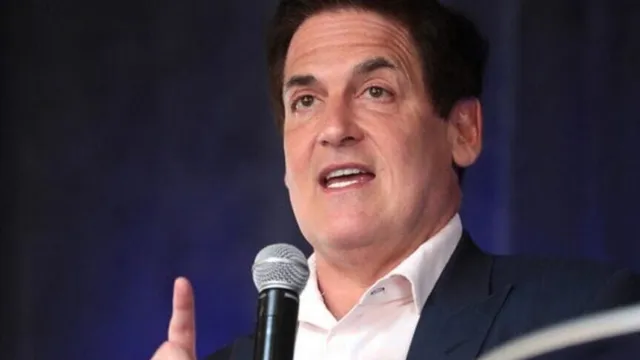
Mark Cuban discusses sanctions vs tariffs in U.S. economy
2024-09-16 10:56- Mark Cuban discussed the impact of U.S. sanctions on Russian companies amid trade tensions with China.
- He suggested that sanctions are preferable to tariffs as they do not tax American consumers.
- Cuban's remarks highlight the complexities of international trade and the potential economic consequences for consumers.
Express your sentiment!
Insights
Mark Cuban recently expressed his views on the trade tensions between China and Russia, particularly in relation to U.S. sanctions on Moscow. He highlighted the challenges faced by Russian companies as they navigate increased costs from Chinese banks, which have raised the yuan-ruble exchange rate. This situation has been exacerbated by the weakened ruble due to Western sanctions, making Russia increasingly dependent on China for trade, while also exposing it to potential exploitation by foreign banks. Cuban argued that sanctions could be more effective than tariffs, as they do not impose a direct tax on American consumers. His comments come amid concerns from the U.S. and European Union regarding China's support for Russia's military actions, which are perceived as a threat to global security. This has led to heightened tensions and scrutiny of the relationship between China and Russia. Additionally, Cuban has previously criticized tariffs proposed by Donald Trump, warning that they could lead to increased consumer costs and inflation. Economic experts have echoed these concerns, suggesting that tariffs could harm consumers and the economy at large. The backdrop of these discussions includes reports of significant payment delays for Russian businesses due to global banks returning a large percentage of yuan transfers, linked to secondary sanctions imposed by the U.S. In response to these challenges, China and Russia are exploring barter trading systems to circumvent U.S. banking surveillance, aiming to reduce oversight and mitigate currency risks. This move reflects their desire to maintain trade relations despite the pressures from Western sanctions and export controls, which have been criticized by China as disruptive to global trade stability.
Contexts
Mark Cuban has recently raised questions regarding Donald Trump's investment history in startups, particularly those not involving family members. Cuban's skepticism stems from a perceived lack of evidence supporting Trump's claims of such investments, despite the financial disclosure obligations that come with being a presidential candidate. This scrutiny reflects broader concerns about Trump's character and business practices, contrasting sharply with the views of his supporters who regard him as a successful businessman. In a separate but relevant development, Rep. Pat Fallon introduced the SAFE Supply Chains Act aimed at protecting federal networks from cyber threats posed by countries like China and Russia. This legislation mandates that federal agencies procure electronics solely from original manufacturers or authorized resellers, addressing the risks associated with counterfeit products that could jeopardize sensitive government systems. These events highlight ongoing discussions about economic policies, national security, and the integrity of business practices in the U.S. economy. The scrutiny of Trump's investment history and the introduction of protective legislation reflect a climate of increased vigilance regarding both economic and cybersecurity issues. Overall, the intersection of these topics underscores the complexities of the current political and economic landscape, where concerns about character, investment integrity, and national security are increasingly intertwined.